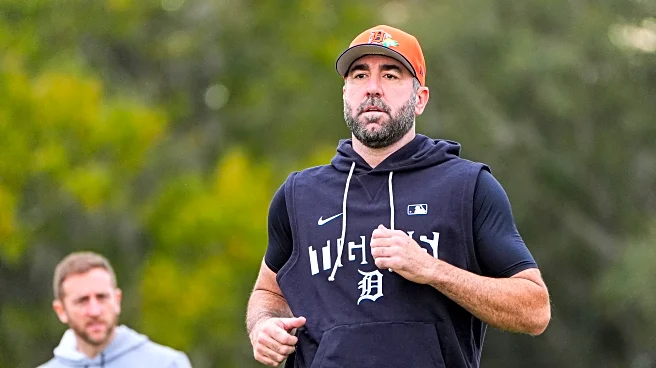What's Happening?
Former Military Advocate-General of the Israel Defense Forces, Yifat Tomer-Yerushalmi, was evacuated to a hospital after experiencing health issues. Her family reported that she was not feeling well, prompting
medical personnel to respond. Upon arrival, the MDA team found Tomer-Yerushalmi in a semi-conscious state and provided immediate medical treatment. Tomer-Yerushalmi, who previously attended a farewell ceremony for retiring acting Supreme Court president Uzi Vogelman, has been a significant figure in the IDF legal system.
Why It's Important?
The hospitalization of Yifat Tomer-Yerushalmi, a prominent figure in the IDF, underscores the importance of health and well-being among high-ranking officials. Her role as Military Advocate-General involved significant responsibilities, including legal oversight within the military. This incident may prompt discussions on the pressures faced by individuals in such positions and the need for adequate health support systems. It also highlights the human aspect behind military leadership, reminding stakeholders of the personal challenges that can accompany professional duties.
What's Next?
As Tomer-Yerushalmi receives medical care, there may be further updates on her condition and recovery. The incident could lead to increased attention on health protocols for military personnel, especially those in high-stress roles. Stakeholders within the IDF and related legal circles might consider reviewing support systems to ensure the well-being of their members. Additionally, this event may spark conversations about the balance between professional obligations and personal health among military leaders.
Beyond the Headlines
This situation may also raise ethical considerations regarding the transparency of health issues among public figures. The coverage of Tomer-Yerushalmi's hospitalization could lead to discussions about privacy and the public's right to know about the health of influential individuals. Furthermore, it may prompt a broader dialogue on the cultural expectations of resilience and strength in military leadership, potentially influencing future policies on mental and physical health support.









